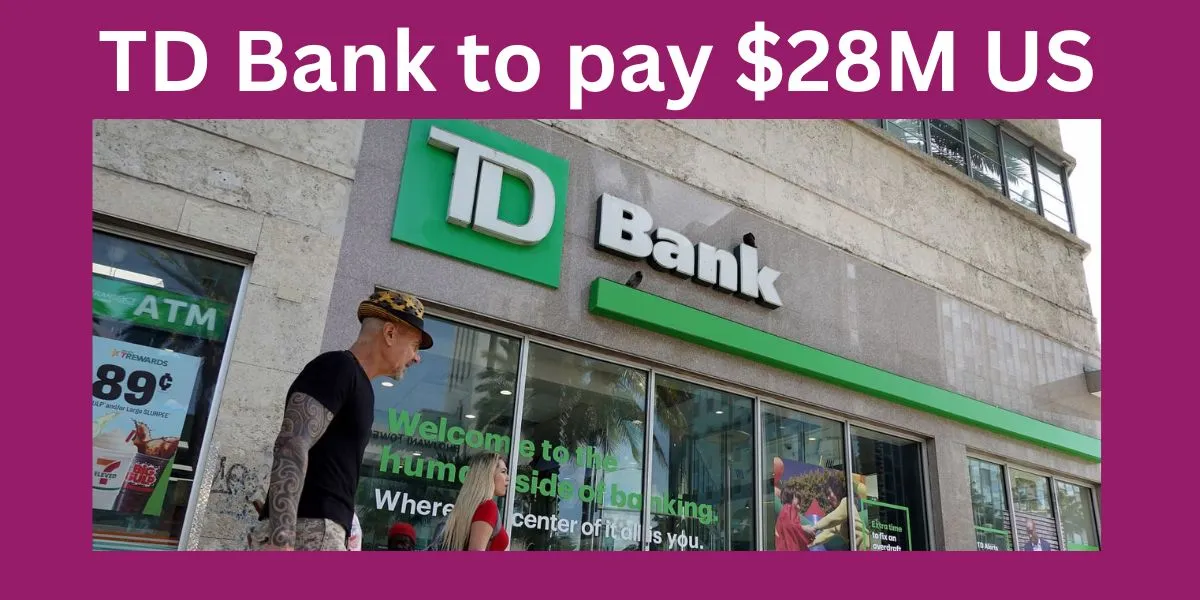The digital age has made banking more accessible, but with that convenience comes greater responsibility. When data handling goes wrong, the results can be costly—and not just for the bank involved. TD Bank recently found itself in hot water, facing a hefty $28 million fine for mishandling consumer data in the US. Let’s dive into what happened, why it matters, and what lessons we can take from it.
What Happened?
The Background of the Issue
TD Bank, a major player in North American banking, was fined $28 million for sharing inaccurate consumer data. This fine wasn’t just a slap on the wrist. It came from US regulatory bodies, which found TD’s practices harmful to consumers. The financial penalty is part of a settlement addressing the bank’s improper data management and sharing, specifically relating to consumer credit reports.
What Did TD Bank Do Wrong?
TD Bank was found to have shared incorrect information with consumer reporting agencies. These agencies play a crucial role in determining credit scores and financial opportunities for millions of Americans. Sharing inaccurate data can negatively impact someone’s creditworthiness, affecting their ability to secure loans, credit cards, or even housing. So, what kind of inaccurate data are we talking about here?
The Nature of the Inaccurate Data
The exact nature of the data errors was tied to incorrect reporting on consumer accounts. For example, some customers were reported as having outstanding debts when they had already paid them off. Others saw their payment history misreported, potentially making them appear riskier than they actually were. As you can imagine, these errors could cause significant financial harm to individuals.
Why Is Accurate Consumer Data So Important?
In today’s financial landscape, your credit score is everything. It’s not just a number—it determines whether you get approved for that home loan, car financing, or even a new apartment. If your credit report contains inaccurate information, it could ruin your financial future. For TD Bank to share inaccurate data is like spreading rumors that can tarnish someone’s financial reputation.
The Ripple Effect on Consumers
Imagine being denied a mortgage because a bank said you still owed money on a loan that you paid off months ago. That’s not just frustrating—it’s unfair. When a major institution like TD Bank makes these kinds of mistakes, the fallout can be devastating for everyday consumers. Whether you’re trying to build credit or maintain a good score, inaccurate data can be a major roadblock.
The $28 Million Fine: Breaking It Down
Why $28 Million?
$28 million sounds like a huge amount, right? But how did regulators come up with this figure? The fine is essentially a settlement reached between TD Bank and US regulators, including the Consumer Financial Protection Bureau (CFPB). These agencies take consumer protection seriously, and when a bank’s practices harm the public, they step in to make things right.
Regulatory Bodies Involved
Multiple regulatory bodies in the US ensure that banks comply with the law, especially when it comes to consumer protection. In TD’s case, the CFPB led the charge. Their mission is to ensure that consumers are treated fairly in the financial marketplace, and they clearly believed that TD’s actions warranted a significant penalty.
The Impact on TD Bank
While $28 million may sound like a lot, for a massive bank like TD, it’s a drop in the bucket. However, the real cost to the bank may come from the hit to its reputation. Banks rely heavily on consumer trust, and any breach of that trust can lead to customers jumping ship for competitors. In an industry as competitive as banking, reputation is everything.
What Does This Mean for Consumers?
Protecting Yourself From Inaccurate Data
If TD Bank’s case teaches us anything, it’s that consumers need to be proactive about monitoring their credit reports. You can’t always rely on banks to get it right. Regularly check your credit report to ensure there are no mistakes. And if you do find an error, take action immediately. Contact the reporting agency and the institution responsible for the error. Your financial future could depend on it.
How to Check Your Credit Report
Luckily, checking your credit report is easier than ever. In the US, you’re entitled to one free credit report per year from each of the three major credit reporting agencies: Equifax, Experian, and TransUnion. You can request your report online, and if you spot something off, don’t hesitate to dispute it.
What to Do If You Find an Error
Finding an error on your credit report isn’t the end of the world—but it can feel like it. The first step is to contact both the credit bureau and the company that provided the incorrect information. This is your right under the Fair Credit Reporting Act (FCRA). Make sure to keep records of all your communications, and don’t give up until the error is corrected.
Lessons for Banks and Financial Institutions
Data Accuracy is Non-Negotiable
For banks, this case is a wake-up call. Data accuracy isn’t just a “nice to have”—it’s essential. Every financial institution has a responsibility to ensure that the data they share about consumers is 100% accurate. The consequences of getting it wrong aren’t just financial—they’re ethical.
The Role of Technology in Data Management
In an era where technology runs everything, there’s no excuse for inaccurate data. Banks invest heavily in IT systems to manage customer information, but even the best systems can have flaws. Financial institutions need to regularly audit their data and systems to ensure that errors don’t slip through the cracks.
The Importance of Transparency
Another key lesson here is the importance of transparency. If banks make mistakes, they need to own up to them. Trying to cover up or downplay errors only makes things worse in the long run. Consumers value honesty, and banks that take responsibility are more likely to maintain trust, even after a mistake.
The Road Ahead for TD Bank
Can TD Recover?
So, what’s next for TD Bank? While $28 million is a big fine, the real challenge for the bank will be regaining consumer trust. People don’t easily forget when a bank mishandles their personal information, especially when it affects their financial stability.
The Role of Public Relations
Expect TD Bank to launch a major public relations campaign to rebuild its image. They’ll likely emphasize their commitment to data accuracy and consumer protection moving forward. Whether that’s enough to win back the public’s trust remains to be seen.
Industry-Wide Changes?
This incident could also lead to broader changes within the banking industry. Regulators may push for tighter controls on how banks manage and share consumer data. It’s possible we’ll see more audits, stricter reporting requirements, and heavier penalties for future violations.
Conclusion
TD Bank’s $28 million fine for sharing inaccurate consumer data is a stark reminder of the importance of data accuracy in the financial world. For consumers, this serves as a call to action: always keep an eye on your credit report. For banks, it’s a warning that even seemingly small data errors can lead to massive consequences.
Banks need to prioritize transparency and data integrity. In the end, trust is the currency of the financial industry. Lose that, and no amount of money can save you.
FAQs
1. What led to TD Bank’s $28 million fine?
TD Bank was fined for sharing inaccurate consumer data with credit reporting agencies, which negatively impacted consumers’ credit scores.
2. How can I check if my credit data is accurate?
You can request a free credit report once a year from Equifax, Experian, and TransUnion. Regularly review your report for any errors.
3. What should I do if I find an error on my credit report?
Contact both the credit reporting agency and the institution responsible for the mistake. Under the Fair Credit Reporting Act, they are required to investigate and correct any inaccuracies.
4. Is this a common issue in the banking industry?
While not common, inaccurate data reporting does happen. Regulatory bodies like the CFPB work to hold financial institutions accountable for such errors.
5. Will TD Bank face more penalties in the future?
It’s possible, especially if further data inaccuracies are uncovered. However, the bank has likely taken steps to prevent similar issues moving forward.










